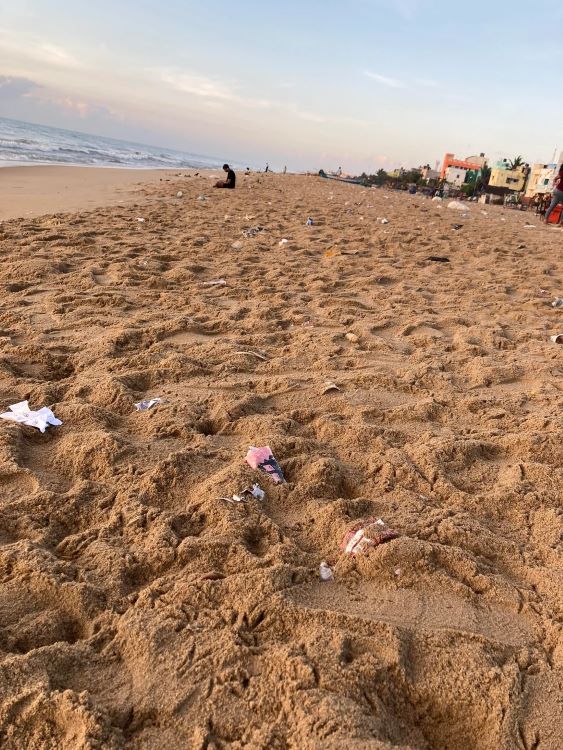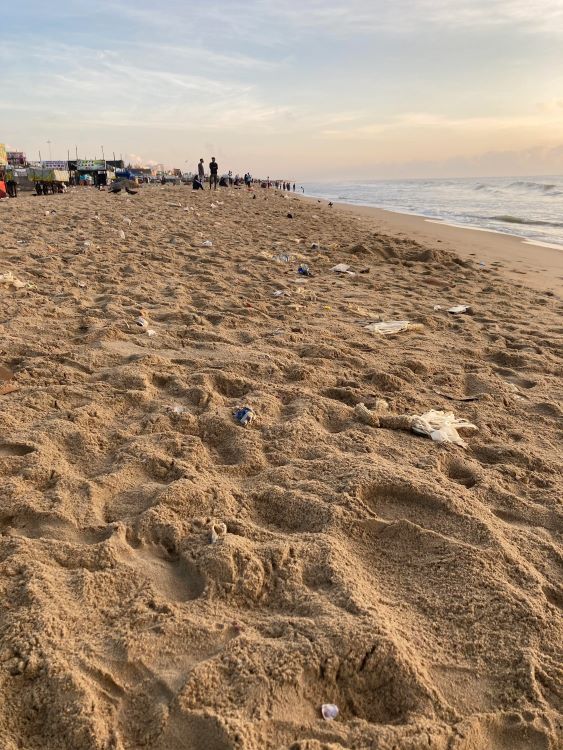Perhaps few things ruin a beach-going experience as much as coming across trash. And for one person in Chennai, India, that's practically all they found.
They posted photos of the garbage-strewn sands on the city's subreddit, lamenting: "Seriously it's becoming [a] major health hazard. It was like walking in a garbage dump and all spread across the sands."


The waste that's visible is nearly unidentifiable, clearly having been exposed to the ocean's elements for some time. Scraps of what appear to be plastic packaging and food wrappers are buried, their brightly colored logos fading in the sun.
Other local commenters were similarly frustrated by the scene. "The complete apathy towards cleanliness is astonishing," one person wrote.
Another echoed, "We lack civic sense with a pride that doesn't make sense."
This issue extends beyond India — indeed, beyond beaches in general. It seems that, regardless of how many signs are posted or how many barriers are installed, people find a way to leave remnants of their presence in nature.
From scattered beer cans and food wrappers left at campsites to scattered confetti pieces left over from park parties, some of these instances could be viewed as an oversight by the people littering them. But in many instances, the vandalism — or outright destruction of natural features — is clearly done with intent.
And for places like Chennai, as one commenter wrote, seeing trash "[kills] the whole experience of going to the beach."
And while in an ideal world, people would simply recognize the value of keeping nature clean and unpolluted for its own sake, many others believe that rules and restrictions are necessary.
"Unless strict rules and these things are fined heavily people won't change," one person commented. Unfortunately, many times it can be difficult to identify an individual culprit; though with certain violations, like trespassing into protected areas, parks are getting creative and tracking people down on social media.
Keeping protected areas clean and free of garbage is beneficial not only to nature itself, but also to the people who enjoy it. Spending time outside and in green spaces, for example, has been shown to boost both mental and physical health.
Research from Harvard's School of Public Health found that "exposure to green space has been linked to better sleep, lower blood pressure, and reduced risk of chronic disease" and decreased risk of psychiatric disorders among both adults and children.
Join our free newsletter for good news and useful tips, and don't miss this cool list of easy ways to help yourself while helping the planet.









